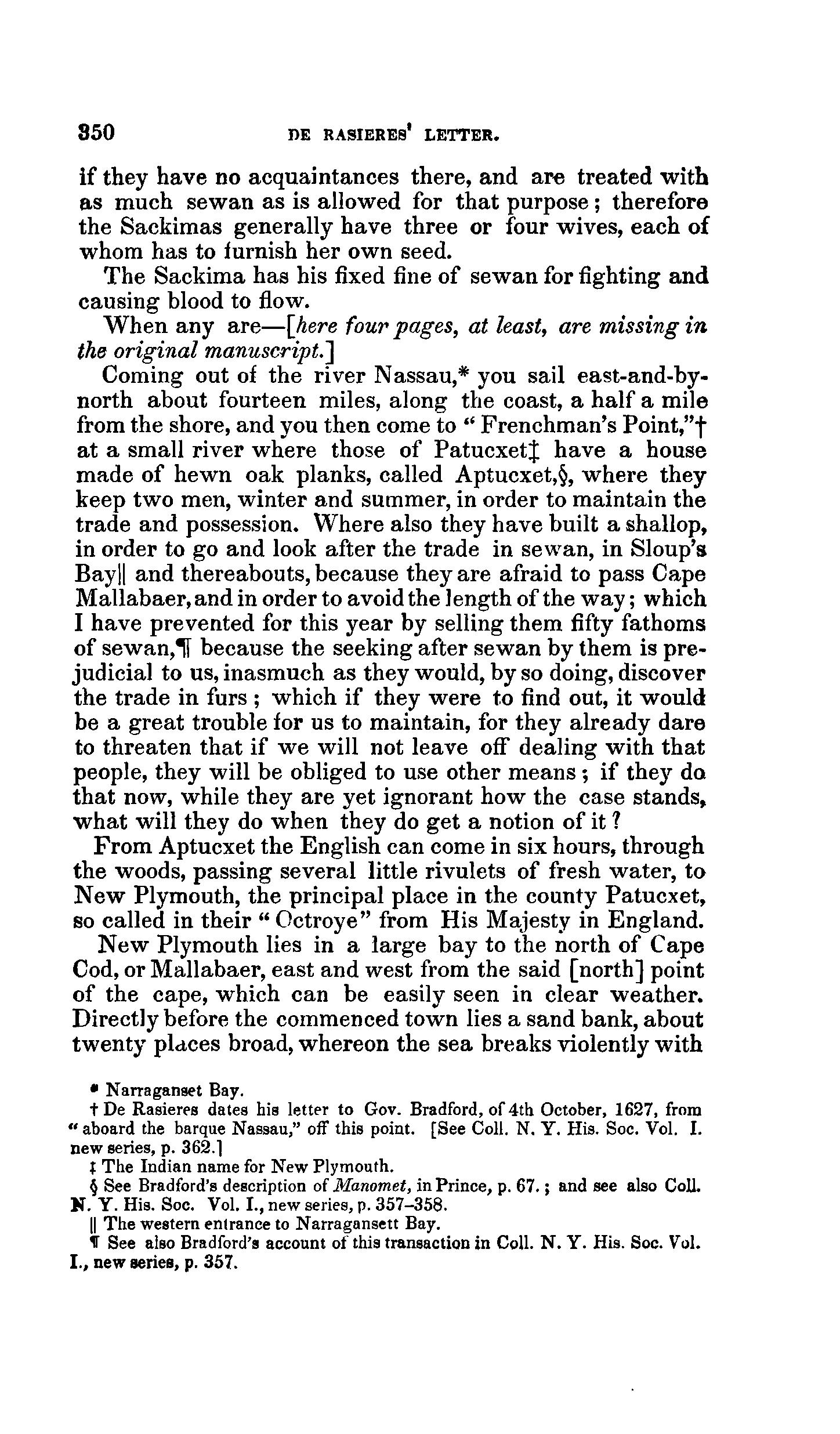Holding Institution
Document ID
LOC-11022437_012
Description
New Netherland in 1627. Letter from Isaack de Rasieres to Samuel Blommaert, found in the Royal library at the Hague, and transmitted by Dr. M.F.A.G. Campbell to the N.Y. Historical Society. Image 012
Document Date
1627-00-00
Document Date (Date Type)
1627-01-01


